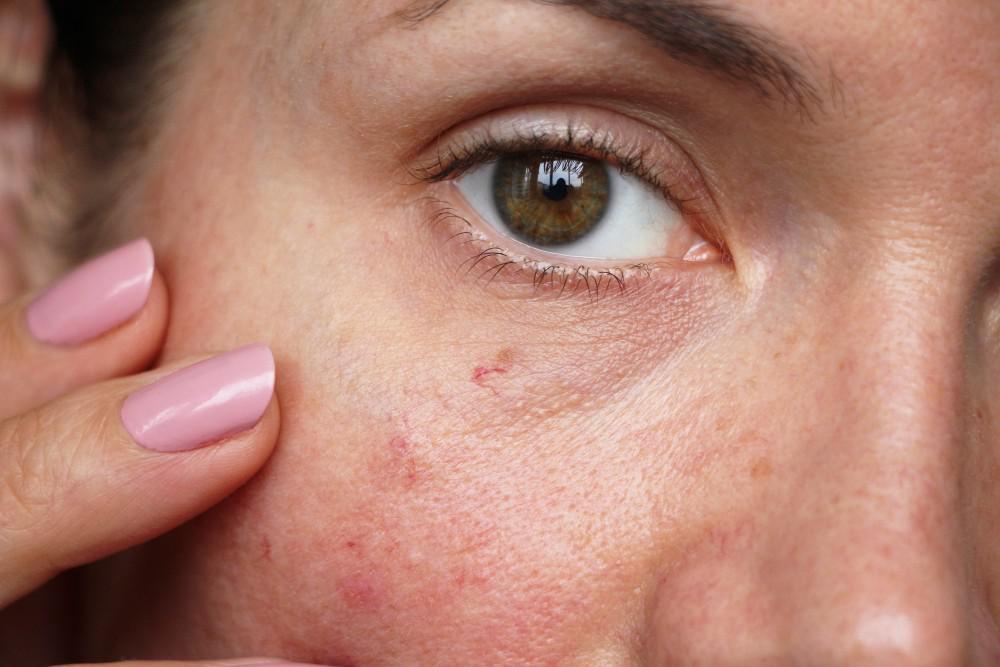
Vascular lesions, or birthmarks, are one of the most common skin abnormalities you may develop before or shortly after birth. They’re the result of blood vessel growth just underneath the surface of the skin. Vascular lesions may take on a number of forms such as wounds, sores, ulcers, and tumors. Many times they’re benign and require no treatment, but in some cases they may spread causing a number of medical complications.
Stephanie Herrera, MD and her team at Lake Jackson Medical Spa specialize in treating vascular lesions. When you come in for an evaluation, she can assess what treatment is best for your condition.
Different types of vascular lesions
There are two types of vascular lesions: hemangiomas and vascular malformation.
Hemangiomas
Hemangiomas are benign tumors of cells that line blood vessels. They appear red, rubbery, and may stick out from the skin. Children are more likely to have this vascular lesion at a very young age, and they may appear in any part of the body, but most commonly on the face, scalp, chest, or back.
Over the course of a few months the lesion will grow and darken. After 6-12 months the lesion will stabilize, and eventually, it will shrink. Most lesions will disappear completely by the time a child turns 10 years old. If you have a child with a hemangioma near their eye or ear, you should seek treatment because this can lead to permanent blindness or deafness.
Vascular Malformation
Vascular malformations appear when you’re born, but unlike hemangiomas, they may become more apparent at different ages. These malformations create abnormal growth in your veins, lymph vessels, arteries, capillaries, or any combination of these areas.
These malformations are classified as:
- Capillary malformations
- Venous malformations
- Lymphatic malformations
- Arterial malformations
- Arteriovenous malformations
- Complex malformations
You may experience different symptoms depending on the part of your body where the malformation occurs. These symptoms may include pain, infection, bleeding, or stress on the heart.
Treatment
When it comes to treating vascular lesions, you have a few options. Here are the ones Dr. Herrera recommends.
Cortisone injections
One treatment you may take to reduce the appearance of vascular lesions are cortisone shots. They contain corticosteroid medication and a local anesthetic. The number of injections you can get is limited, however, as they come with serious side effects.
Some of the most common side effects are thinning of skin and soft tissue around the injection site, whitening of the skin, increase in blood sugar, and poor growth in children.
Icon laser therapy
The preferred method for targeting vascular lesions is laser therapy. Laser therapy targets only the abnormal blood vessels underneath the surface of your skin and leaves the rest of the surrounding tissue intact. During the laser treatment, Dr. Herrera applies a low-level laser to the lesion that can travel as far as three inches below your skin. The lasers eliminate the growth and promote healthy cell production. The lasers also stimulate the production of collagen and enzymes that prevent scarring.
The benefits of laser therapy include:
- No need for pain medication following procedure
- Improved immune response
- Faster healing
- Reduced swelling
- Improved blood circulation
- Reduced inflammation
There may be some side effects after laser treatment. These include minor pain, skin discoloration, bleeding, infection, or crusting.
Sclerotherapy
In sclerotherapy, Dr. Herrera injects the blood vessel with a solution, generally a salt solution. The solution irritates the lining of the blood vessel, the blood vessel then collapses and sticks together. The blood begins to clot. The vessel gradually turns into scar tissue until it disappears out of sight.
Pregnant women are not eligible for this procedure. If you have experienced blood clots in the past, your candidacy for this treatment can be determined after a consultation.
If you’ve discovered a vascular lesion on your body, we recommend you book an appointment with Dr. Herrera. You can contact Lake Jackson Medical Spa by phone or online.